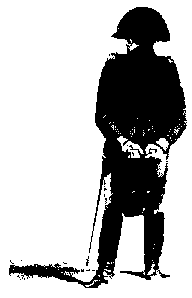
"...a soldier of genius and the creator of modern Europe." -David Chandler
 "No man has more indelibly
stamped his personality on an era
than did Napoleon. In his own time
and for more than a century to come,
military theory and practice were
measured against his standards and
related to his concepts of
warmaking." So wrote R. Ernest and
Trevor N. Dupuy in their massive
work, The Encyclopedia of Military
History (Harper & Row, 1977). His
enemies were so impressed with
Napoleon Bonaparte's genius that
Prince Metternich, Austrian
ambassador to France, Minister of
Foreign Affairs and Chancellor,
labebed the period the "Age of
Napoleon" shortly after the French
Emperor's death. This sobriquet has
lasted to this day.
"No man has more indelibly
stamped his personality on an era
than did Napoleon. In his own time
and for more than a century to come,
military theory and practice were
measured against his standards and
related to his concepts of
warmaking." So wrote R. Ernest and
Trevor N. Dupuy in their massive
work, The Encyclopedia of Military
History (Harper & Row, 1977). His
enemies were so impressed with
Napoleon Bonaparte's genius that
Prince Metternich, Austrian
ambassador to France, Minister of
Foreign Affairs and Chancellor,
labebed the period the "Age of
Napoleon" shortly after the French
Emperor's death. This sobriquet has
lasted to this day.
If Napoleon himself is our raison d'etre, Napoleon magazine's reason for being, the subtitle: "His Life, His Wars, His World" indicates how much more of the rich and varied history of the period we plan to cover within the pages of this new publication.
The military chronicles will always be a major part of each issue. Indeed, the historian Brigadier General T.R. Phillips has claimed that Napoleon, commencing with the Siege of Toulon during the wars of the French Revolution in 1793, to his final defeat at Waterloo twentytwo years later, fought more battles than Alexander the Great, Hannibal, and Julius Caesar combined.
Napoleon magazine will include far more military history than only battles and campaigns. As demonstrated in this issue, we will cover interesting units and their uniforms, fascinating personalities, and we will examine the weapons, tactics and achievements of military science in the early 19th Century.
But this was also the time of Beethoven in music, Robespierre and the Reign of Terror, Josephine and other Libertines, the overthrow of the ancien regime of kings and its replacement with the Rights of Man, civil reforms and the Code Napoleon (still in effect today), the start of restaurants and haute cuisine, the discovery of the Rosetta Stone which enabled the re-discovery of ancient Egypt, the Industrial Revolution and the Luddite revolt against it, the ascendancy of David and neoclassicism in art, and the birth of Romanticism embodied in the works of Byron, Kant, and Goethe. All these topics and more will be embraced in our new periodical.
Other things you will see in Napoleon magazine include places to visit, reports on conferences and conventions, sources and information on artifacts, militaria and other collectibles, reviews of books and games, and interviews with significant people active in the field of Napoleonic history.
One thing you won't see much of are editorials like this one. Unless we have something important to say, this space will be taken by letters and responses from our readers. Your interests and requests will help guide us.
Charles Dickens, born during the Age of Napoleon and possibly remembered best around this time of year for his story, A Christmas Carol, also wrote one of the most famous novels about the French Revolution. The oft-quoted passage from his A Tale of Two Cities is perhaps the best description of this incredible era:
"It was the best of times, it was the worst of times, it was the age of wisdom, it was the age of foolishness, it was the epoch of belief, it was the epoch of incredulity, it was the season of Light, it was the season of Darkness, it was the spring of hope, it was the winter of despair, we had everything before us, we had nothing before us, we were all going direct to Heaven, we were all going direct the other way."
Join us in celebrating this extraordinary period of history through Napoleon magazine.
Todd Fisher
President & CEO
Emperor's Press/Emperor's Headquarters
Chicago
Back to Table of Contents -- Napoleon #1
Copyright 1995 by Emperor's Press.